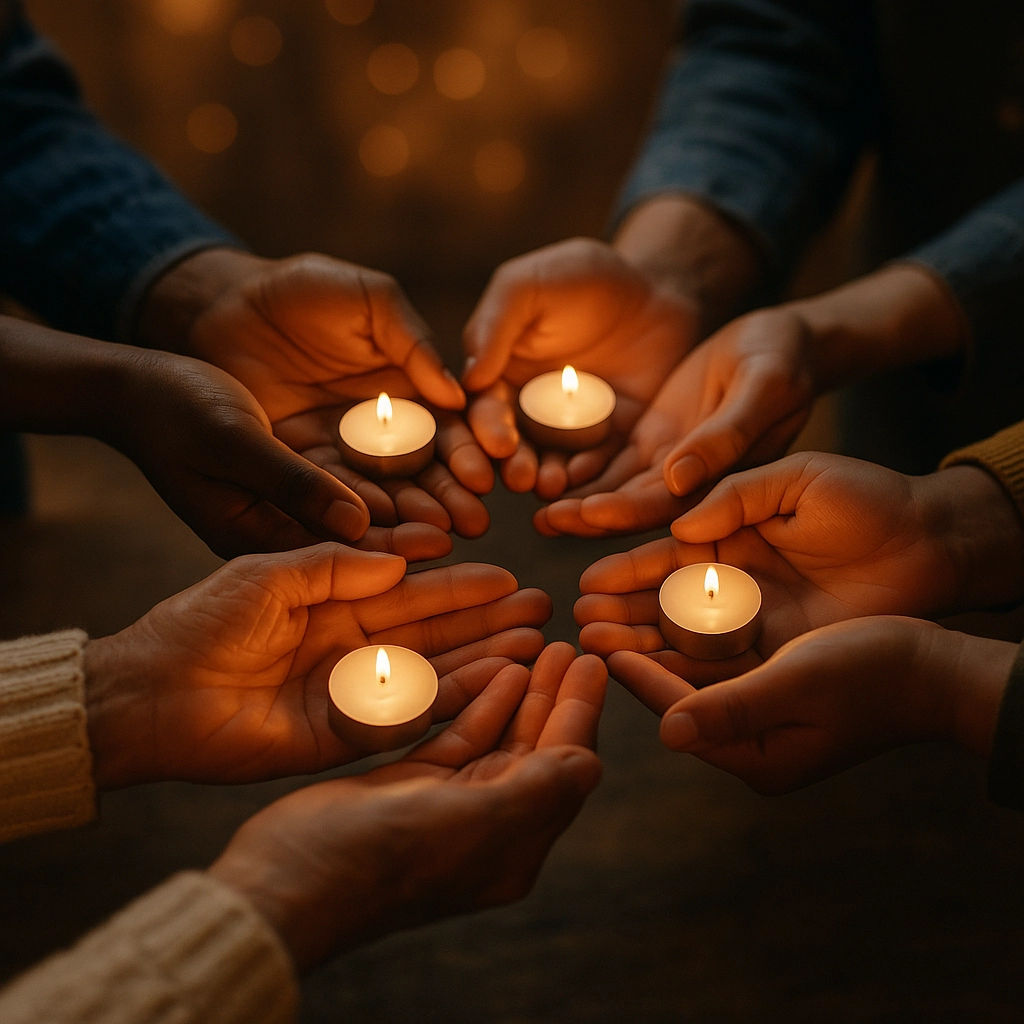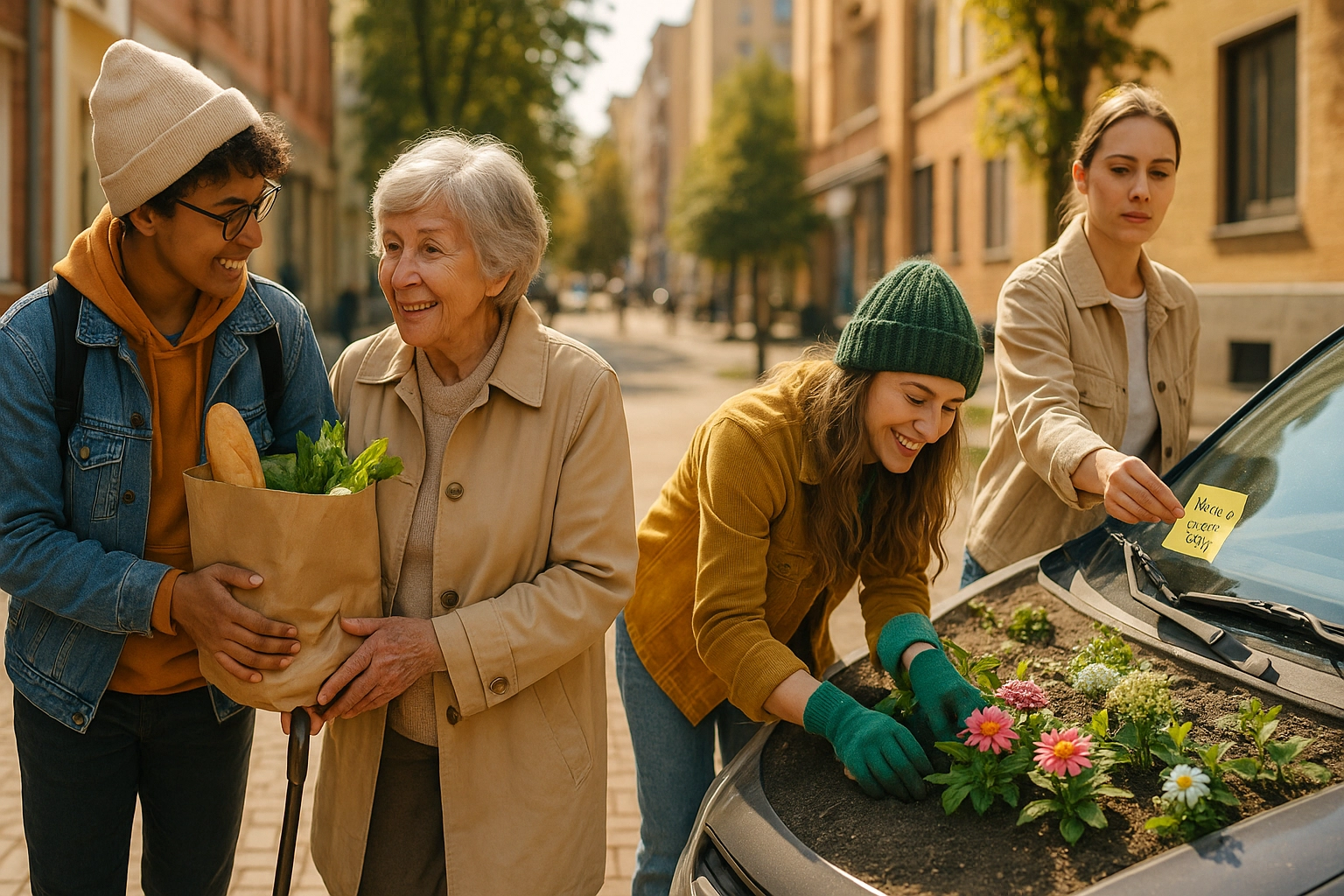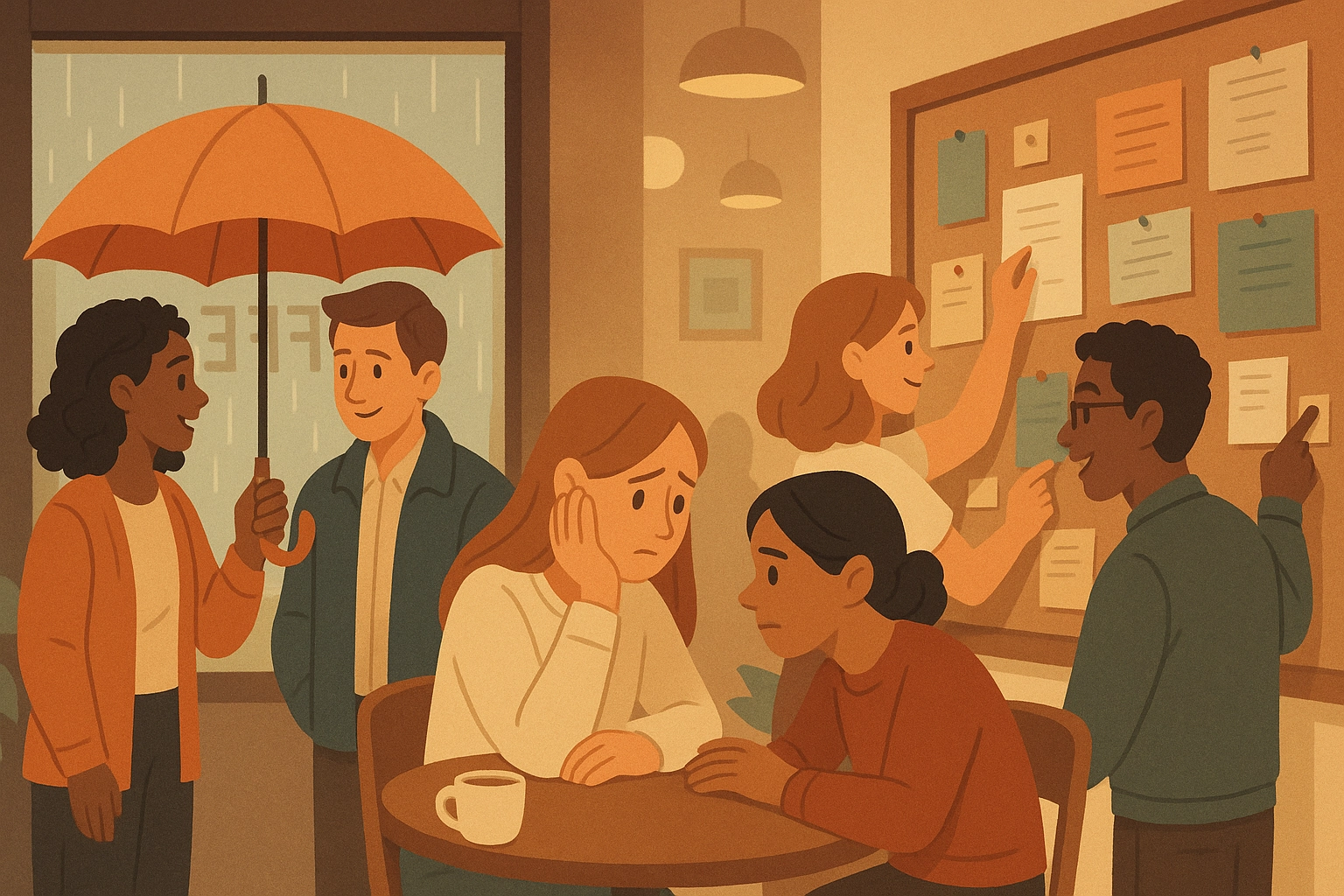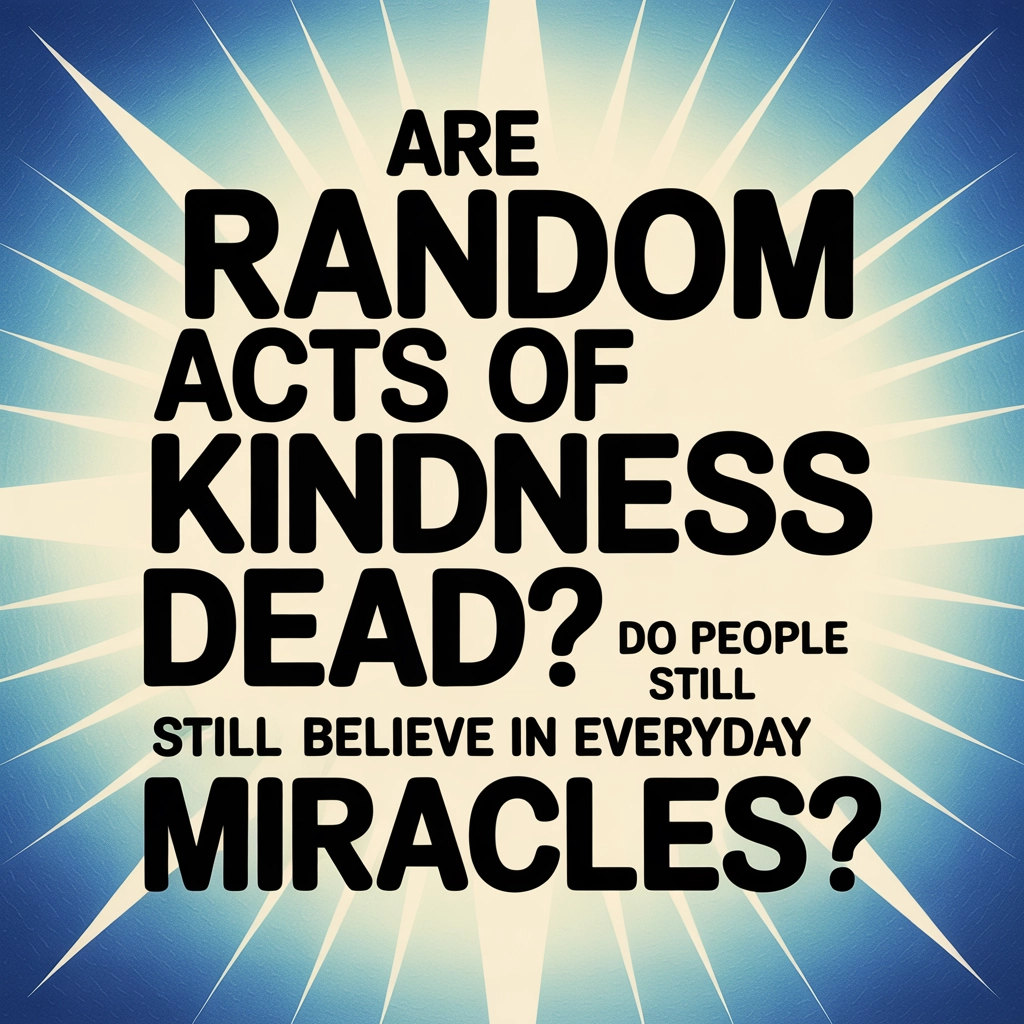Let's be honest, scrolling through social media these days can make you feel like the world has lost its heart. Road rage videos, political arguments, and endless negativity seem to dominate our feeds. So it's natural to wonder: have we actually given up on being kind to each other? And in our increasingly skeptical world, do people still believe that everyday miracles can happen?
The short answer might surprise you: kindness isn't dead, and people absolutely still believe in miracles. But like everything else, both have evolved in ways that might not look exactly like what we remember from the past.
The Data Doesn't Lie: Kindness Is Still Alive
Here's something that might shock you: according to the World Happiness Report, acts of kindness are actually more than 10% higher than they were before the pandemic (2017-2019). Sure, there was a slight dip in 2024 from the COVID-era peak when everyone was looking out for their neighbors, but we're still way ahead of where we started.
And get this, Random Acts of Kindness Day isn't some relic from the past. It's happening again on February 17, 2026, just like it has every year since it started in Denver back in 1995. What began as a local initiative has spread globally, proving that the idea of intentional kindness still resonates with people everywhere.

But maybe the most convincing evidence comes from researchers who actually study this stuff. Scientists have found that people who performed five acts of kindness in a single day for six weeks experienced significant boosts in happiness. And here's the kicker, this works regardless of your gender, age, or education level. They've tested it on male Chinese prisoners, female middle school students in Hong Kong, Japanese participants, South Koreans, and Americans. The results? Kindness makes people happier across all cultures and demographics.
How Kindness Has Evolved (It's Not Your Grandma's Version)
The thing is, random acts of kindness in 2025 don't always look like the classic "pay for the coffee behind you" scenario (though that still happens). Today's version is more creative and often more intentional:
- Sending encouraging emails to colleagues who are struggling
- Organizing neighborhood cleanup days
- Complimenting strangers (in appropriate ways)
- Donating blood or signing up as an organ donor
- Volunteering at local food banks or shelters
- Leaving positive reviews for small businesses
- Sharing someone's fundraiser on social media
- Mentoring someone in your field
The digital age has actually expanded our ability to be kind. We can now support causes instantly, connect isolated people with communities, and spread encouragement across vast distances with just a few taps.

The Miracle Question: Faith Meets Reality
Now, about those everyday miracles, this is where things get really interesting. Approximately 98% of evangelical Christians report believing in miracles, which represents millions of people in the U.S. alone. But here's what's changed: how people approach and understand miracles has become more nuanced.
Many believers today don't just pray for dramatic healing or financial windfalls. Instead, they're praying for wisdom for doctors, comfort during difficult times, and strength to get through challenges. It's less about expecting lightning bolts and more about recognizing the subtle ways life can take unexpected positive turns.
One Harvard-trained scholar noted that while miracle belief remains strong, people are approaching healing prayers differently, acknowledging that sometimes the miracle is finding peace in suffering rather than elimination of it.
Why This Matters More Than Ever in 2025
In a world that can feel increasingly divided and cynical, both random acts of kindness and belief in everyday miracles serve crucial psychological functions:
They restore our sense of agency. When you perform a kind act, you're actively choosing to make the world better rather than just complaining about it. When you believe in miracles, you maintain hope that situations can change in unexpected ways.
They build community connections. Kindness creates bonds between strangers and strengthens existing relationships. Shared belief in miracles creates common ground and mutual support networks.
They provide resilience during tough times. Both kindness and miracle belief offer coping mechanisms that help people bounce back from adversity.

The Skeptic's Perspective (And Why It's Valid Too)
Let's acknowledge the elephant in the room: not everyone buys into this stuff, and that's okay. Some people see random acts of kindness as performative (hello, social media virtue signaling), and others view miracle belief as wishful thinking that prevents people from taking practical action.
These concerns aren't entirely unfounded. When kindness becomes about getting likes and shares rather than genuine compassion, it loses its power. When miracle belief becomes an excuse to avoid medical treatment or ignore systemic problems, it can be harmful.
The key is finding the balance between genuine compassion and authentic hope without falling into either extreme.
What This Means for Your Daily Life
So where does this leave us? Whether you're naturally inclined toward kindness and faith or you're more skeptical, here are some practical takeaways:
Start small and authentic. You don't need to change the world overnight. Hold the door open, smile at the cashier, or text a friend who's going through a rough patch. Small, genuine gestures often have more impact than grand gestures.
Look for ordinary miracles. Maybe it's not about expecting dramatic divine intervention, but about noticing when things work out in unexpectedly positive ways. The job interview that goes better than expected, the friendship that develops when you need it most, or the solution that appears just when you're ready to give up.
Create systems for both. Random Acts of Kindness Day is great, but what about building kindness into your weekly routine? Same with miracles: instead of waiting for them to happen, what if you positioned yourself to notice them more often?

The Bottom Line
Are random acts of kindness dead? Definitely not. Do people still believe in everyday miracles? Absolutely. Both are alive and well, they just look different than they did in previous generations.
The real question isn't whether these things exist, but whether you're willing to participate in them. Because here's the thing: kindness and miracles often work together. When you choose to be kind, you become someone else's everyday miracle. And when you believe in miracles, you're more likely to create the conditions where kindness can flourish.
In 2025, we need both more than ever. Not the performative, social media-optimized versions, but the real, authentic expressions of human compassion and hope. The world doesn't need fewer people who believe in kindness and miracles: it needs more people who are willing to be instruments of both.
So maybe the question isn't whether these things are dead or alive. Maybe the question is: what role will you play in keeping them thriving?
